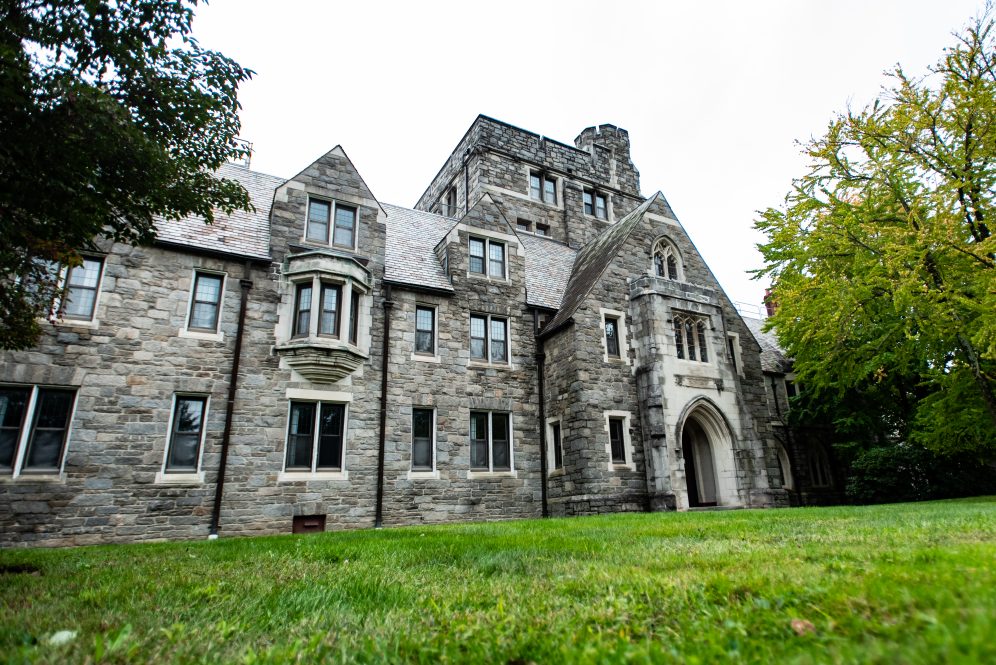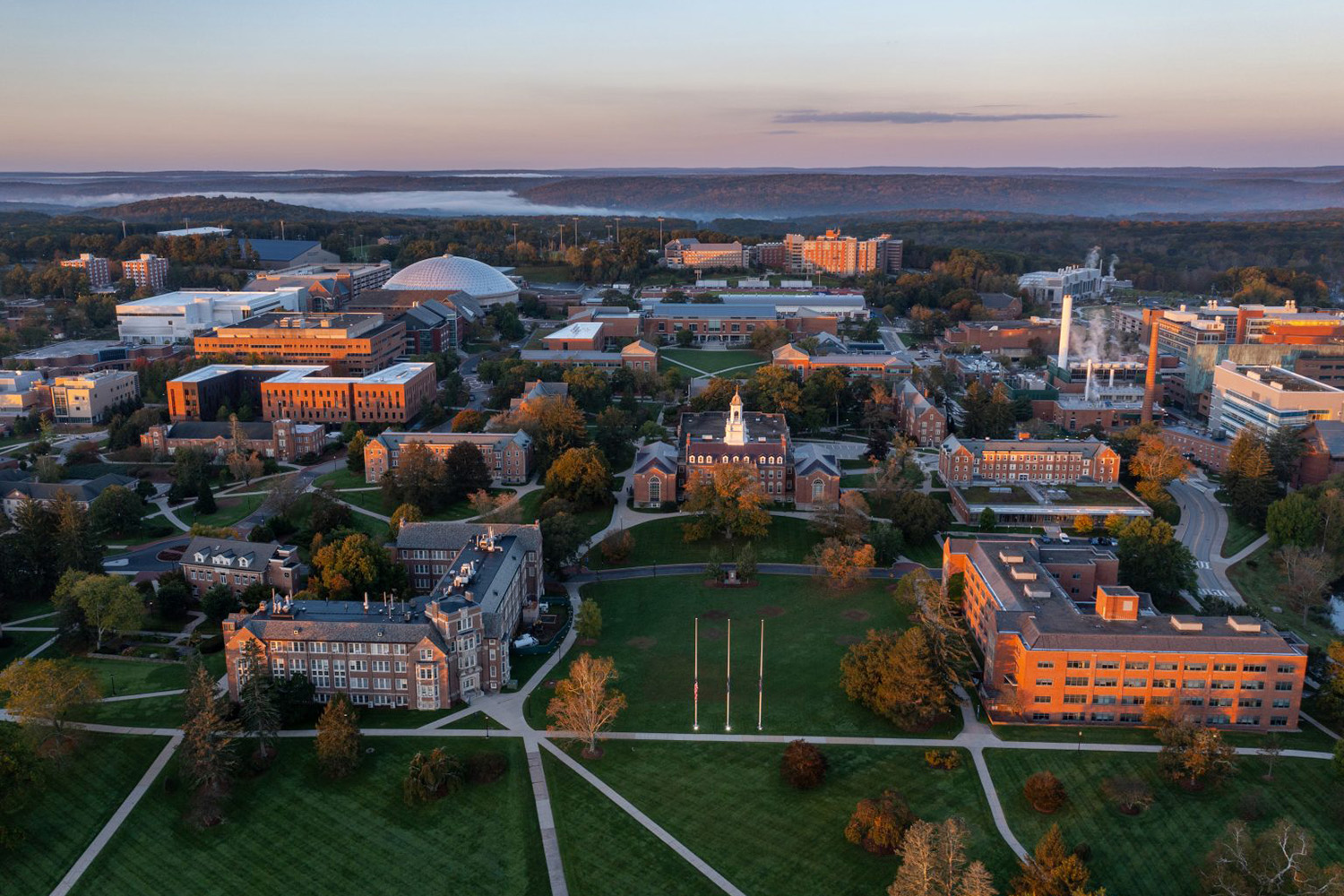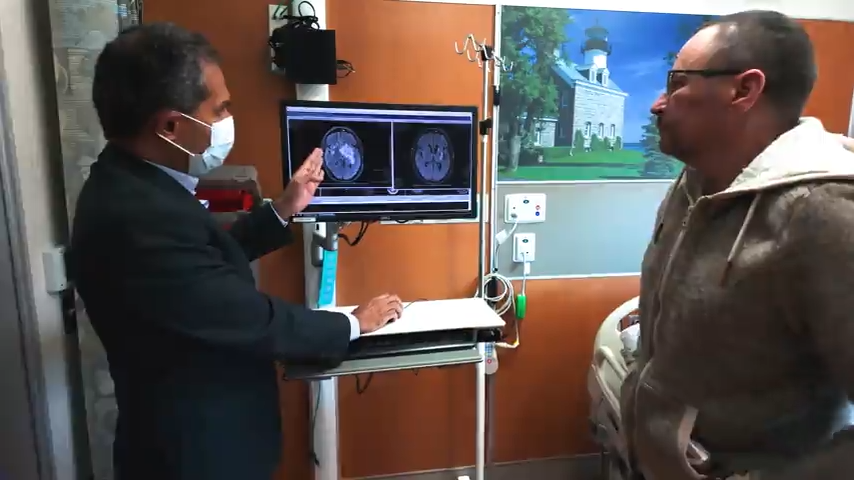The UConn School of Law will soon be able to house its legal clinics and related services in a single on-campus building, letting it expand programs that help members of the community while providing students with real-world legal experience.
State officials recently agreed to UConn’s proposal to accept ownership of MacKenzie Hall at 110 Sherman St. in Hartford, which the University briefly owned in 1981 when it acquired the campus of the former Hartford Seminary.
The University retained use of five other buildings at that time, which now comprise the law school’s campus. It transferred MacKenzie Hall to the state, which housed portions of the state Attorney General’s Office before moving those employees to downtown Hartford earlier this year.
Proceedings to transfer the building back to the University will be complete in October, and various UConn Law programs will transition into the building over the following months and into 2024.
The law school plans to house its seven in-house legal clinics in MacKenzie Hall, along with related offices and seven additional legal clinics through which the school partners with other entities. MacKenzie Hall will also become the home of the Connecticut Community Law Center.
“We are extremely pleased with this opportunity to centralize our clinics, which are key to UConn Law’s mission of community engagement and essential to the practical training of our students,” UConn School of Law Dean Eboni S. Nelson says. “The additional space will be put to excellent use.”
Like the other five buildings that comprise the UConn Law School campus, MacKenzie Hall was constructed in Collegiate Gothic style and is part of the broader campus inventory listing on the National Register of Historic Places.
“The building is a natural fit for academic use, as it’s strategically positioned on the campus and aesthetically resembles the five buildings currently occupied by the law school,” Jeffrey Geoghegan, UConn’s executive vice president for finance and chief financial officer, wrote in the University’s proposal to the state Office of Policy & Management.
“Transferring (it) to UConn would represent an opportunity to reuse a surplus state-owned building while at the same time achieving the highest and best use for the property as an educational facility,” he wrote.
MacKenzie Hall will become the new home of UConn Law’s seven in-house legal clinics and seven partnership legal clinics, which provide experience for hundreds of law students yearly and offer pro bono legal counsel and services to members of the local community, including children, individuals with disabilities, entrepreneurs, veterans, elderly individuals, and organizations.
UConn Law’s in-house programs include clinics in animal law, asylum and human rights, criminal defense at the trial level, housing and eviction defense, intellectual property and entrepreneurship, tax law, and transactional law.
In the past year, 114 students enrolled in the in-house clinics and 370 clients were represented, with one clinic having also served as a court-appointed advocate in 30 additional cases. Thirteen UConn Law faculty members taught in the in-house programs.
UConn Law’s partnership clinics include programs in children’s advocacy, criminal defense at the appellate level, disability rights, elder law, environmental law, and veterans’ benefits, as well as work with the U.S. Attorney’s Office. In the past year, 37 students enrolled in the partnership clinics and nine faculty members taught.
The Law School also hosts the Connecticut Community Law Center, which trains attorneys and students to provide legal services for low and moderate-income clients who do not qualify for legal aid, but cannot afford standard legal fees.
Due to space constraints on the campus, the on-campus and partnership law clinics work in several different locations. They will be housed together in MacKenzie Hall after the property transfer, providing a single location for those seeking legal services and advice to engage with the UConn legal clinics.
The centralized location will increase opportunities for collaboration among the clinics and make it easier for clinics to cross-refer clients who need representation in multiple areas.
Law school leaders say the building will be set up to be accessible, vibrant, and community-facing with a welcoming reception area, offices and work rooms, conference rooms, small and midsized classrooms, an event and lecture room on the ground floor, lounge areas, and centralized office suites for the specific programs.
“Having a central, visible, and robust space will likely increase UConn Law’s community outreach through additional referrals and walk-in clients, as well as provide … a better educated and prepared workforce for the State of Connecticut,” UConn officials wrote in the proposal to the state to take ownership of the building, noting the location is ideal because it is in Hartford’s West End and accessible on the CT Transit bus line.
“MacKenzie Hall provides the perfect opportunity for UConn’s Experiential Programs to flourish and expand their service to members of the public,” the proposal says.



